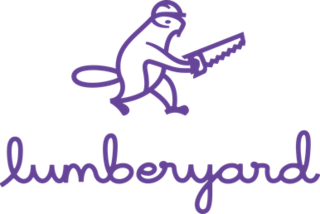
Simple DirectMedia Layer (SDL) is a cross-platform software development library designed to provide a hardware abstraction layer for computer multimedia hardware components. Software developers can use it to write high-performance computer games and other multimedia applications that can run on many operating systems such as Android, iOS, Linux, macOS, and Windows.
Irrlicht is an open-source game engine written in C++. It is cross-platform, officially running on Windows, macOS, Linux and Windows CE and due to its open nature ports to other systems are available, including FreeBSD, Xbox, PlayStation Portable, Symbian, iPhone, AmigaOS 4, Sailfish OS via a QT/Qml wrapper, and Google Native Client.

Microsoft XNA is a freeware set of tools with a managed runtime environment that Microsoft developed to facilitate video game development. XNA is based on .NET Framework, with versions that run on Windows and Xbox 360. XNA Game Studio can help develop XNA games. The XNA toolset was announced on March 24, 2004, at the Game Developers Conference in San Jose, California. A first Community Technology Preview of XNA Build was released on March 14, 2006.
Torque Game Engine, or TGE, is an open-source cross-platform 3D computer game engine, developed by GarageGames and actively maintained under the current versions Torque 3D as well as Torque 2D. It was originally developed by Dynamix for the 2001 first-person shooter Tribes 2. In September 2012, GarageGames released Torque 3D as open-source software under the MIT License.
GarageGames was a game technology and software developer. GarageGames was the parent company of GG Interactive, developers of educational technology in the areas of computer science, video game development and programming. In addition, the company has been a video game developer and publisher. GarageGames created several game engines targeted for indie development. Founded in Eugene, Oregon, the company had offices in Las Vegas, Nevada, United States and its headquarters in Vancouver, Washington. In 2007, GarageGames was acquired by IAC and the company was renamed TorquePowered. In 2011, the company was purchased by Graham Software Development and reverted to the original name GarageGames.

PhysX is an open-source realtime physics engine middleware SDK developed by Nvidia as a part of Nvidia GameWorks software suite.

Unity is a cross-platform game engine developed by Unity Technologies, first announced and released in June 2005 at Apple Worldwide Developers Conference as a Mac OS X game engine. The engine has since been gradually extended to support a variety of desktop, mobile, console and virtual reality platforms. It is particularly popular for iOS and Android mobile game development, is considered easy to use for beginner developers, and is popular for indie game development.
Umbra is a graphics software technology company founded 2007 in Helsinki, Finland. Umbra specializes in occlusion culling, visibility solution technology and provides middleware for video games running on Windows, Linux, iOS, PlayStation 4, Xbox One, PlayStation 3, Xbox 360, Wii U, handheld consoles, and other platforms. In 2021, Amazon acquired Umbra.
PhyreEngine is a license-only free to use game engine from Sony Interactive Entertainment, compatible with PlayStation 5, PlayStation 4, PlayStation 3, PlayStation VR, PlayStation Vita, PlayStation Portable, Nintendo Switch, Microsoft Windows, Google Android and Apple iOS. PhyreEngine has been adopted by several game studios and has been used in over 200 published titles.

The Chromium Embedded Framework (CEF) is an open-source software framework for embedding a Chromium web browser within another application. This enables developers to add web browsing functionality to their application, as well as the ability to use HTML, CSS, and JavaScript to create the application's user interface.

Simple and Fast Multimedia Library (SFML) is a cross-platform software development library designed to provide a simple application programming interface (API) to various multimedia components in computers. It is written in C++ with bindings available for Ada, C, Crystal, D, Euphoria, Go, Java, Julia, .NET, Nim, OCaml, Python, Ruby, and Rust. Experimental mobile ports were made available for Android and iOS with the release of SFML 2.2.
MonoGame is a free and open source C# framework used by game developers to make games for multiple platforms and other systems. It is also used to make Windows and Windows Phone games run on other systems. It supports iOS, Android, macOS, tvOS, Linux, PlayStation 4, PlayStation 5, PlayStation Vita, Xbox One and Nintendo Switch. It implements the Microsoft XNA 4 application programming interface (API). It has been used for several games, including Bastion, Celeste,Fez, and Stardew Valley.

TrueAudio is the name given to AMD's ASIC intended to serve as dedicated co-processor for the calculations of computationally expensive advanced audio signal processing, such as convolution reverberation effects and 3D audio effects. TrueAudio is integrated into some of the AMD GPUs and APUs available since 2013.
Universal Windows Platform (UWP) is a computing platform created by Microsoft and introduced in Windows 10. The purpose of this platform is to help develop universal apps that run on Windows 10, Windows 10 Mobile (discontinued), Windows 11, Xbox One, Xbox Series X/S, and HoloLens without the need to be rewritten for each. It supports Windows app development using C++, C#, VB.NET, and XAML. The API is implemented in C++, and supported in C++, VB.NET, C#, F# and JavaScript. Designed as an extension to the Windows Runtime (WinRT) platform introduced in Windows Server 2012 and Windows 8, UWP allows developers to create apps that will potentially run on multiple types of devices.

Amazon Lumberyard is a now-superseded freeware cross-platform game engine developed by Amazon and based on CryEngine, which was licensed from Crytek in 2015. In July 2021, Amazon and the Linux Foundation announced that parts of the engine would be used to create a new open source game engine called Open 3D Engine, which would replace it. A new Open 3D Foundation, run by the Linux Foundation, will manage the new engine, which will be licensed under the open source Apache 2.0 license. The new engine is reportedly partially based on Lumberyard but with many parts rewritten, and is considered a new engine.
Stride is a free and open-source 2D and 3D cross-platform game engine originally developed by Silicon Studio. It can be used to create video games for PC, mobile devices and virtual reality.
Microsoft, a technology company historically known for its opposition to the open source software paradigm, turned to embrace the approach in the 2010s. From the 1970s through 2000s under CEOs Bill Gates and Steve Ballmer, Microsoft viewed the community creation and sharing of communal code, later to be known as free and open source software, as a threat to its business, and both executives spoke negatively against it. In the 2010s, as the industry turned towards cloud, embedded, and mobile computing—technologies powered by open source advances—CEO Satya Nadella led Microsoft towards open source adoption although Microsoft's traditional Windows business continued to grow throughout this period generating revenues of 26.8 billion in the third quarter of 2018, while Microsoft's Azure cloud revenues nearly doubled.

MsQuic is a free and open source implementation of the IETF QUIC protocol written in C that is officially supported on the Microsoft Windows, Linux, and Xbox platforms. The project also provides libraries for macOS and Android, which are unsupported. It is designed to be a cross-platform general purpose QUIC library optimized for client and server applications benefitting from maximal throughput and minimal latency. By the end of 2021 the codebase had over 200,000 lines of production code, with 50,000 lines of "core" code, sharable across platforms. The source code is licensed under MIT License and available on GitHub.








